What if the mysteries of life and existence have been kept alive in a faith that’s been flourishing for over 4,000 years? Hinduism, with close to a billion followers globally, is not just a religion; it’s a dynamic blend of beliefs and practices that have significantly shaped Indian culture.
Known as Sanatana Dharma, or “eternal law,” Hinduism invites its followers to embark on a deep journey into spirituality and ethics. With around 80% of India’s population identifying as Hindu, its influence is woven into daily life, festivals, and traditions.
This ancient faith presents a wide variety of deities, sacred texts, and philosophies, making it a living narrative that continues to be relatable today.
Explore Hinduism: The World’s Oldest Living Religion through this blog.
As we explore Hinduism, get ready to discover the timeless insights and fascinating stories that make this religion one of the oldest and most important faiths in the world.
The Origins of Hinduism: A Journey Through Time
Often considered the oldest religion on the planet, Hinduism has roots that stretch back over 4,000 years to the Indus Valley Civilization. What’s interesting is that it doesn’t have a single founder; instead, it grew from a mix of various cultural and spiritual influences.

The word “Hindu” actually comes from the Persian term for the Indus River, which points to its geographical beginnings. Early Hindu practices included things like fire sacrifices and ancestor worship, and these have carried on through the years.

The Vedic period, which kicked off around 1500 BCE, was crucial for Hinduism, as it introduced the Vedas—sacred texts that have shaped many of the beliefs and customs that are still part of Hindu life today.
Key Characteristics of Hinduism: What Sets It Apart?
What makes Hinduism stand out among the world’s religions? One major thing is its incredible diversity and the absence of a single, unified god.
Hindu philosophy is centered around the idea of Brahman, the ultimate reality, along with many deities that reflect different aspects of this cosmic force.
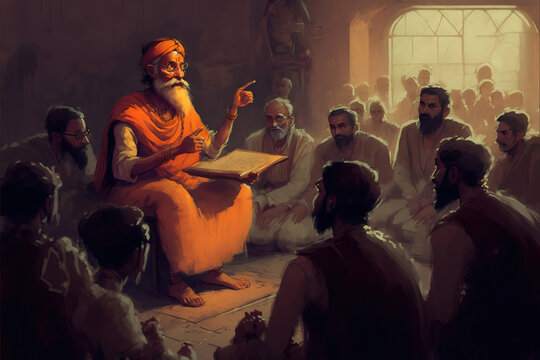
The belief in karma suggests that our actions have repercussions that influence our future lives, linking closely with the cycle of reincarnation (samsara). This connection fuels the quest for liberation (moksha), seen as the ultimate aim.
Dharma, or the concept of moral duty, focuses on the ethical responsibilities that come with one’s place in society, guiding people toward living a good life.
Important texts like the Vedas and epic stories like the Mahabharata provide valuable spiritual insights and philosophical teachings. Worship practices, known as puja, can vary a lot but usually include offerings and community events.

Lastly, Hinduism values personal spiritual experiences through meditation and yoga, promoting a strong bond with the divine while remaining flexible in modern times.
read more about the Vedas – https://itihaaskikhoj.in/4-vedas-the-pillars-of-indian-knowledge/
Sacred Texts: The Foundations of Hindu Beliefs
Sacred texts play a huge role in shaping beliefs and practices in Hinduism. They’re mainly split into two categories: Shruti, which means “what is heard,” and Smriti, meaning “what is remembered.”

The Vedas, falling under Shruti, are the oldest scriptures and include four key texts: Rigveda, Samaveda, Yajurveda, and Atharvaveda. These texts are packed with hymns, rituals, and philosophical ideas that lay the groundwork for Hindu beliefs.

Smriti texts, like the Mahabharata and Ramayana, tell epic stories of gods and heroes while teaching moral lessons through captivating narratives.
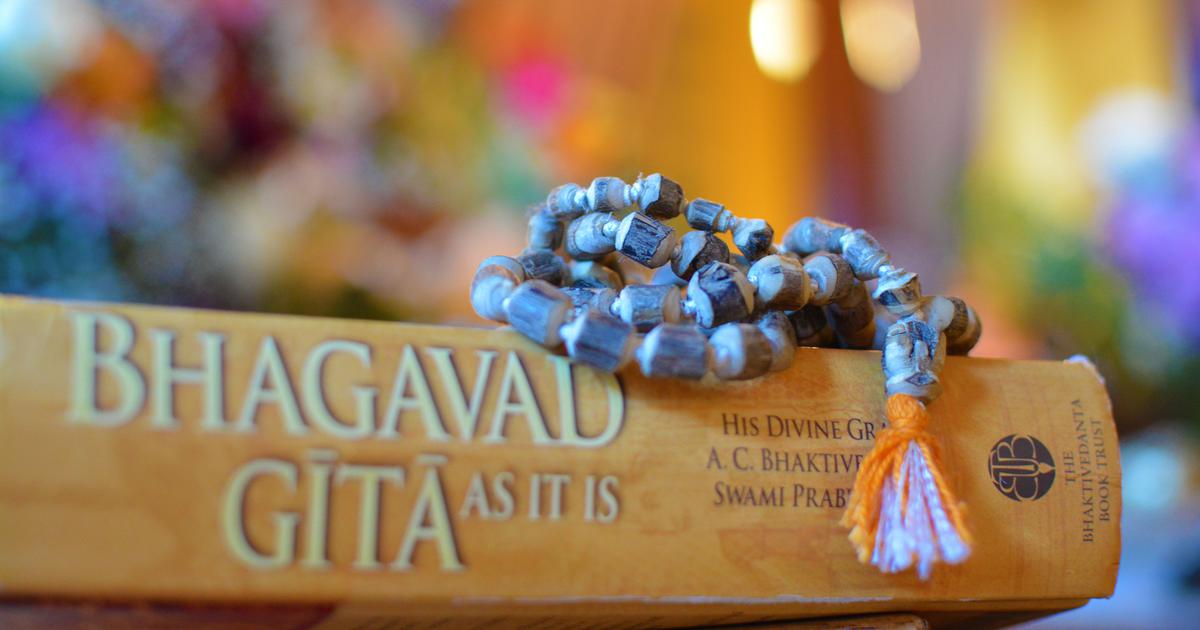
You should read the Bhagavad Gita, that sacred text is a book of dialogues that are exchanged between Lord Krishna and one of the Pandavas. Arjuna is still relevant and will provide you answers to your problems and peace to your heart.
These scriptures not only offer spiritual direction but also reflect the diverse culture and philosophy of Hinduism, influencing many generations and shaping the spiritual landscape of India and beyond.
Major Deities: Understanding the Hindu Gods
In Hinduism, the gods and goddesses are essential in shaping the spiritual experiences of their followers, representing various elements of life and the universe.
The religion features a vibrant array of deities, with the main trio called the Trimurti: Brahma (the Creator), Vishnu (the Preserver), and Shiva (the Destroyer).

Each of these gods has multiple avatars or incarnations that show up in different forms to bring back cosmic balance when needed. For example, Vishnu’s avatars like Rama and Krishna—who are central to their respective stories—represent ideals like righteousness and divine love.

This diverse view of divinity helps Hindus connect with the divine in personal ways through worship (puja), prayer, and festivals, creating deep spiritual bonds that impact their everyday lives.
Festivals and Celebrations: A Vibrant Cultural Tapestry
You know festivals are super important in Hindu culture, right? Hinduism is celebrated for its colorful festivals that reflect its rich heritage.
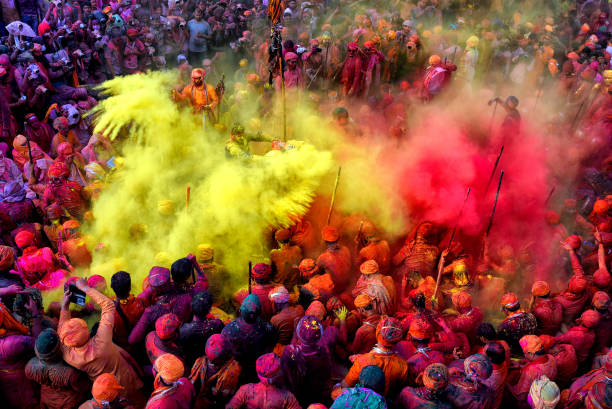
Key celebrations include Diwali, the festival of lights, which stands for the victory of light over darkness; Holi, the festival of colors, celebrating love, happiness, and the arrival of spring; and Navaratri, which honors the goddess Durga with nine nights of dance and devotion.
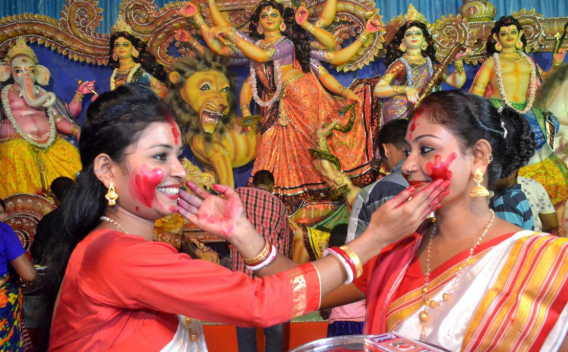
These celebrations are filled with detailed rituals, community gatherings, music, dance, delicious food, and vibrant decorations that create a strong sense of community. Each festival is packed with mythology and tradition, giving Hindus a chance to express their faith while building stronger bonds with family and friends.
Check out the other blog – https://itihaaskikhoj.in/the-ganges-a-divine-journey-through-hindu-history/
Hinduism’s Influence on Society and Culture
The impact of Hinduism on Indian society is really significant. It has influenced the way people think, create art, build structures, and organize their social lives for centuries.
Key ideas like Dharma, which refers to moral duties, and Karma, the principle of cause and effect, are woven into the fabric of everyday life, guiding how individuals interact with their families and communities.
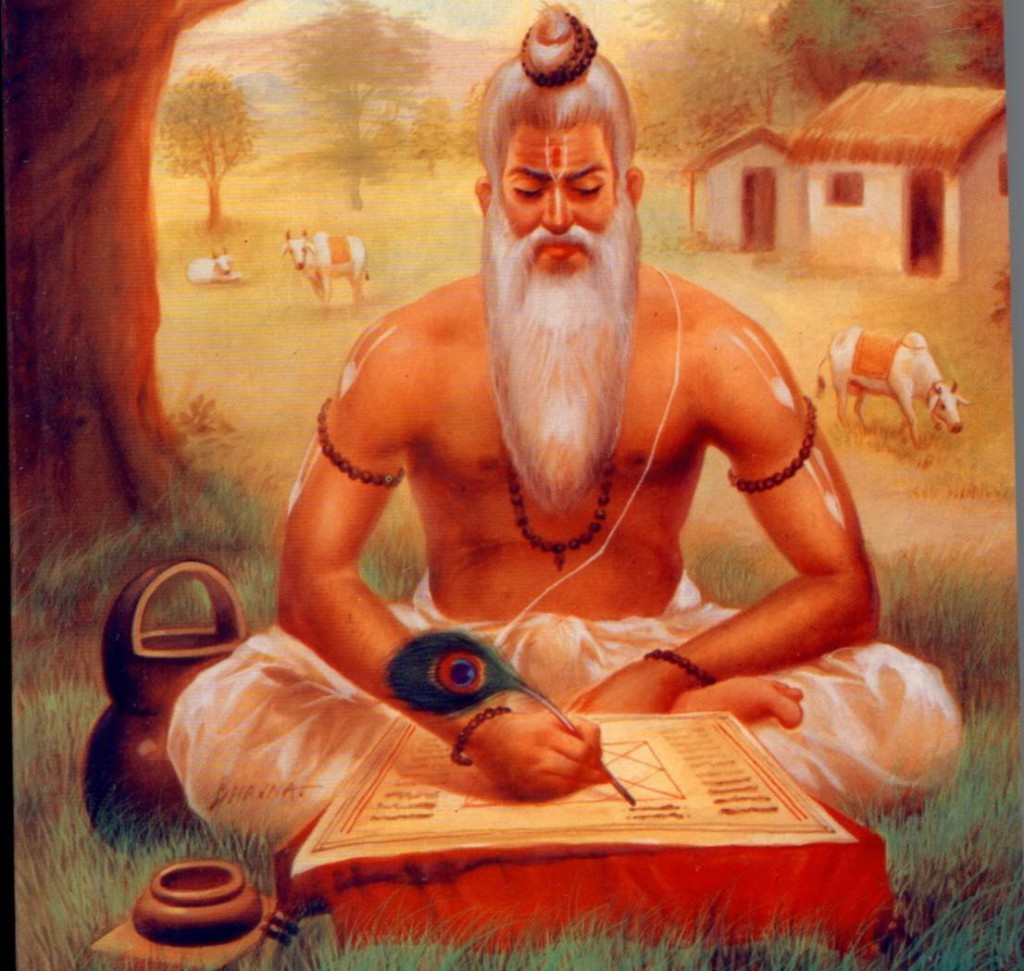
The caste system, although a controversial topic, has its roots in ancient writings like the Manusmriti, which historically divided society into different groups based on their work.
Moreover, Hindu philosophy has inspired a variety of artistic expressions, from classical dance forms like Bharatanatyam to music genres like Carnatic, as well as epic literature and detailed designed temples. This cultural influence is still very relevant today, playing a major role in shaping India’s identity both nationally and internationally.
Read – https://itihaaskikhoj.in/sacred-steps-to-moksha-chardham-yatra/
Modern Hindu Practices: Tradition Meets Contemporary Life
How do today’s Hindus find a balance between their traditions and modern life? In this quick-paced world, many Hindus still practice traditional rituals like daily prayers (puja) while also adapting their beliefs to meet contemporary challenges.
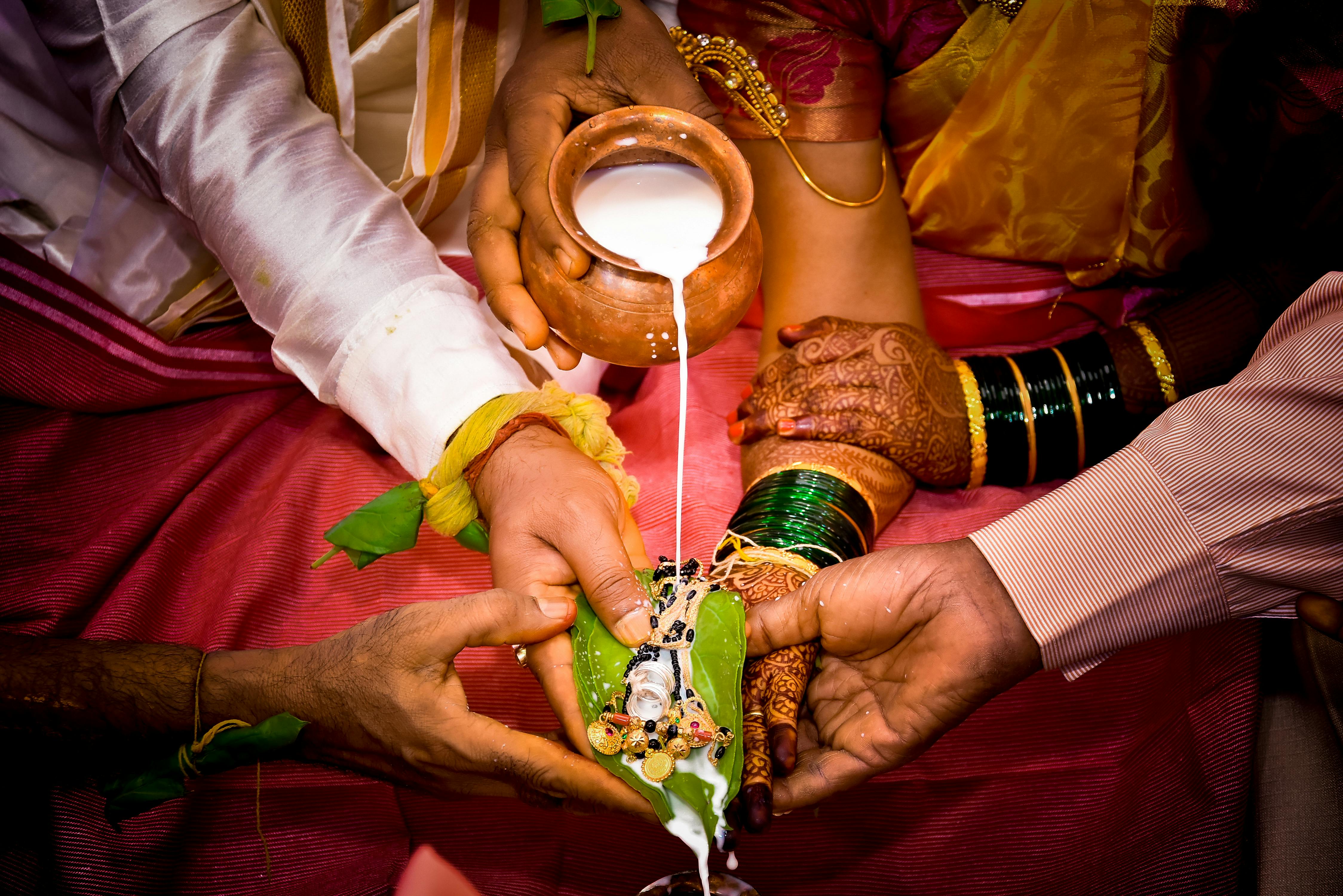
While ancient traditions like festivals and marriage rites are key to their identity, they’re also open to fresh interpretations that match today’s values.
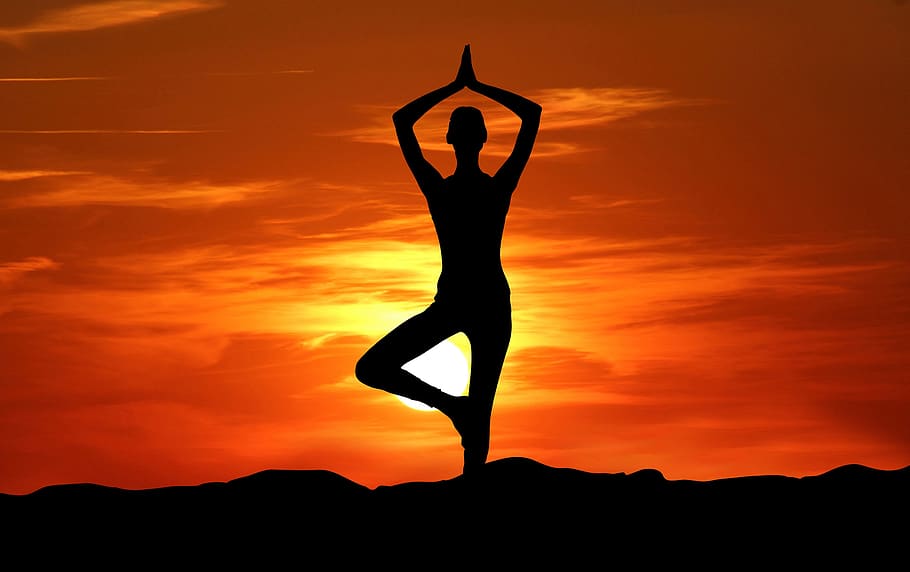
The growing popularity of yoga and meditation, which come from ancient Hindu teachings, is now recognized worldwide for boosting both physical and mental health. Plus, social reform movements within Hinduism are working to tackle problems like gender equality and caste discrimination, pushing for progressive values based on compassion and justice.
This mix of old and new helps Hinduism stay relevant and encourages younger generations to dive deeper into its teachings.
Hinduism in the Global Context: A Religion for All
Now let’s talk about how Hinduism fits into the world today. With around a billion followers, it’s one of the major religions that has crossed borders and made an impact on various cultures everywhere.
Many people outside of India are getting into its spiritual teachings, looking for deeper insights or different routes to enlightenment. In countries like Nepal, where it’s the main faith, and in places like Mauritius and Bali, where it’s mixed with local customs, Hindu festivals are celebrated with tons of excitement by both believers and those curious about its rich traditions.
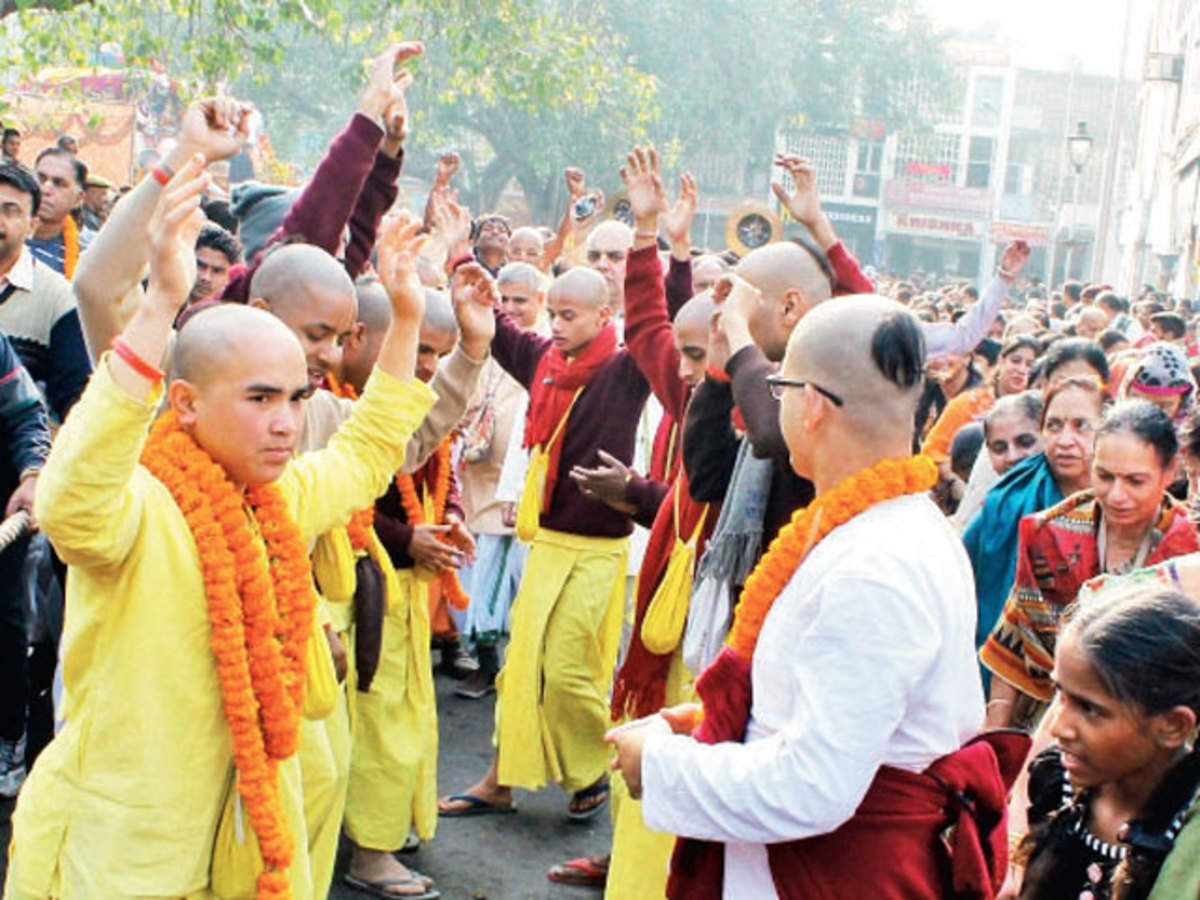
For example, People are joining ISKCON in so many countries nowadays.
Additionally, there’s a growing fascination with yoga philosophy and Ayurvedic medicine as more people turn to holistic approaches to health that are rooted in ancient traditions.
Conclusion:
Hinduism is more than just another faith; it’s a colorful reflection of our deep-rooted search for spiritual meaning, rooted in ancient history. The principles of Dharma (moral duty), Karma (action), and Moksha (liberation) offer valuable guidance for navigating the ups and downs of life, helping countless people on their paths to self-awareness in this expansive universe. The vibrant festivals that mark life’s milestones and the diverse deities that represent different aspects of existence showcase a culture that truly embraces life in all its diversity. This rich heritage continues to motivate its followers today and those seeking knowledge from this timeless tradition called Hinduism. We hope you liked the Blog! Do check out our website for more.

